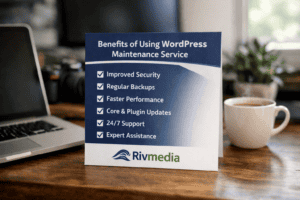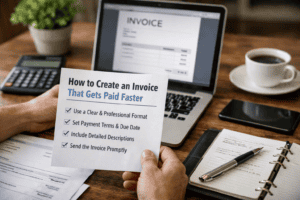Table of Contents

What Is a Business Exit Strategy?
A company exit strategy is a plan for what happens when you want to leave your company.
This approach explains and outlines the shape the transition will take. Just like you’ve written down your business plan to direct your business over the course of its life, you should have one that leads you to a conclusion or a planned exit from the company.
Your exit plan doesn’t have to mean catastrophe or failure or even imminent action — in reality; there are a lot of business owners who start their companies with the express intention of exiting after a specific number of years.
It doesn’t mean that they’re less dedicated entrepreneurs. It just means they’ve got a plan.
That being said, when you think about your exit plan, you’re not only going to want to know how you’re going to leave, but you should also factor in other considerations that are involved in this process such as:
- Are you going to make money when you leave your business?
- How much money are you going to make?
- What’s going to happen to your company after you leave?
- Is it going to survive under new ownership?
- How long is your exit going to take?
- What kind of adjustment time does that involve?
Business Exit Strategies to Consider
Let’s discuss some of the various choices you should be considering for your exit from the company. At the end of the day, there aren’t necessarily any wrong or right ways out of your business, but there are definitely alternatives that might work better for you, depending on your particular circumstances.
Let’s take a look at the exit strategies — discussing what they could look like for you, and their pros and cons:
Continue The Family Legacy
Many business owners dream of keeping their business in the family on a long-term basis, and that means making arrangements to transfer the company to a child or another relative at some point in the future.
This may seem like an enticing business exit strategy, and over time, you can train successors — just make sure that your family relationships can manage the uncertainty and stress of business ownership.
While keeping a business in the family for multiple generations may seem to be the best way to maintain your name in a company, it’s important to be realistic about who really is the best person to run your company as opposed to simply handing it on to the next in line.
Pros:
- When you leave, you can choose and prepare the individual you want to continue your business.
- You don’t have to be entirely independent from your company, and you may be able to remain in a transitional or continuous advisory role.
Cons:
- You might not find a family member who wants (or is capable of) taking part in a company.
- This process will bring a lot of emotional, financial, and general stress to your family.
- Employees, business partners or investors may not accept the person you chose in your family.
Merge or Become Acquired by Another Business
In a merger or acquisition exit strategy, the company is either acquired by or combined with a corporation with similar or related business objectives.
Depending on who you are combining or selling your company to, this approach may mean flexibility in terms of your participation or your freedom to walk away from the company.
One of the best things about this exit strategy is probably the freedom to maximise the sale price while selling to the public (IPO) would value the business relative to the industry.
However, this process will take a long time if it happens at all. BizBuySell reports that about 20% of the companies listed for sale actually get purchased. If it’s your dream to be combined or bought out, you may want to have a Plan B just in case things don’t go to plan.
Pros:
- You’re going to be able to get a clean break from your company (if that’s what you want).
- You will discuss the terms, costs and other specifics of your merger or acquisition.
Cons:
- This can be a time-consuming, expensive, and probably even unsuccessful method.
- Your company could cease to exist as it once did — with a number of potential consequences associated with this action.
Become Part of an “Acquihire”
Unlike typical acquisitions, this exit strategy business plan is one in which a company buys out its investment merely for the purpose of acquiring its qualified or professional employees.
Although this means that your “team” will not last in name, it will help to take care of your workers. In this situation, you will need to discuss terms with the unique interests of your workers in at heart: after all, they came to work for you, not another company.
Pros:
- You will be able to discuss the terms of this special transaction, which ideally means profits for you and a good future for your workers.
- You’re going to have a clean exit from your company, and you’re not going to have to think about ongoing duties or commitments.
Cons:
- As we have stated with traditional mergers or acquisitions, this phase can be expensive, time-consuming and difficult. Plus, you may not be able to locate a buyer who is interested in an “acquihire.” And, once again, you’re going to lose the legacy of your company as you built it.
Management or Employee Buyout
While it may be difficult to plan ahead with many of these strategies, it is likely that people who already work with you may want to purchase your company from you when you’re ready to quit your business.
As these people know you and know how to handle your company, this exit strategy could result in a smoother transition and increase your loyalty to the legacy of your business.
Moreover, since these individuals are already a part of your company and are likely to know you well, they will allow for flexibility in terms of your involvement — they might even choose to retain you as a mentor or advisor to the business.
Pros:
- You should hand your company over to someone who has expertise in the organisation — and you hope you know and trust.
- Since you’re still selling your company, you should be able to make some money out of the sale.
- If you want to stay active in any way, staff who are buying your company should be more likely to let you do some of the work.
- The legacy of your company will remain somewhat intact.
Cons:
- You might not be able to find a worker or manager who wants to buy your company from you.
- You will find that these management changes are difficult to execute and can have a detrimental impact on current clients.
Sell Your Stake In The Business To Partner or Investor
If you are not the sole owner of your company, it is possible to sell off your share to a business partner or another investor. This can be a reasonably “business-as-usual” exit strategy, depending on the purchaser.
Pros:
- Your corporate history will remain intact and, for the most part, the company can continue to run as normal.
- You will finally exit your company and potentially make a profit from the selling of your share.
- You’re working with a buyer who you already know and work with, which means that the procedure should be much easier to handle.
Cons:
- You could not find a buyer or an investor willing to purchase your share.
- It may be more difficult to remain involved in any capacity in your company.
- The process may end up being tense between you and your partner or investor — leading to a variety of possible problems.
Take Your Business Public With an IPO
Many entrepreneurs dream of selling their company to the public for a big profit one day. However, in the field of small business exit strategy planning, this approach is definitely not for everyone — market circumstances need to be just right if this choice is to be viable.
Even if your business is doing really well, in a way that stimulates stock buyers, your industry may still not appeal to the general public, therefore devaluing the company. That’s with us not even mentioning the fact that IPOs are rather uncommon: while domestic public companies in the U.S. have reached around 8,000 (out of millions) in the late 1990s, they have dropped to about 3,600 in recent years.
That being said, however, if it is possible for you and the conditions are right, the IPO can be very lucrative.
Pros:
- Out of all the company exit tactics out there, this is probably the one that’s most likely to make a big profit for you.
Cons:
- This is possibly one of the most challenging exit strategies, involving certain conditions and considerable time, effort and resources.
- Going public also involves rigorous review by shareholders and analysts, as well as a range of criteria (such as company valuation) that need to be met and procedures that need to be completed.
- IPO success is very difficult and rare — especially for many small and medium-sized enterprises.
Liquidate Your Business
As the exit strategy business plan goes, this one is the most final.
If you liquidate, you’ll be closing your company and selling your assets. Saying that — liquidation doesn’t have to mean defeat — just an end to that chapter.
If you’ve decided this is what you want to do, just note that you’re going to have to use the cash you’ve received to pay off any loans and pay off any shareholders. You’ll also want to note how this choice may affect staff, clients or customers who rely on your service.
Pros:
- You’re never going to have to think about the company again, free from the chains involved in trying to maintain a legacy.
- This can be one of the easiest and fastest approaches compared to any other company exit strategies.
Cons:
- You’re probably not going to get the biggest return on investment with this option.
- This strategy may include severing relationships with staff, associates, clients, customers and everyone else involved in the day-to-day or general activity of your company.
Should You Declare Bankruptcy?
This last approach is a choice that you can’t really prepare for.
At the end of the day, no one wants to file for bankruptcy, but this might be your last resort if anything goes wrong (or you never bothered to plan ahead with any of the other escape strategies mentioned above).
In reality, sometimes the need for bankruptcy arises before you’re ready — but in the company lifecycle, it’s not the end of the world. While you might have assets confiscated and problematic loans that need to be repaid, if things get very grim, you’ll be relieved of debts and the strain of the company.
Unfortunately, the threat of bankruptcy is one of the many risks involved in starting and owning a company. Therefore, if the possibility of bankruptcy becomes a fact for you, you’ll want to make sure that you understand exactly what happens when you file a corporate bankruptcy under Chapter 7, 11, or 13.
Pros:
- This official move will relieve you of the liability and debts of your company.
- You’re going to be able to move on from your company and start restoring your credit.
Cons:
- You will not be able to rid yourself of all your debts when you apply for bankruptcy.
- A bankruptcy filing is likely to impair your ability to borrow capital in the future.
- This process is likely to mean an early end to relationships with everyone involved in running your company, as well as customers and clients.
Important Questions For Your Business Exit Strategy
So, where do you start preparing the exit strategy for a small business? While much of what is ultimately involved in your exit strategy will be special to your company, there are a few questions you can ask yourself to start designing your exit plan:
Do You Want To Play An Active Role In Your Business Forever?
If you’re just starting your company, this question may seem almost counter-intuitive. And, even at an early stage in your initiative, it’s crucial to be realistic — and that means looking well into the future and contemplating your company exit strategy plan. Even if you spend your whole career in the same company, most people eventually intend to retire at a certain age. Have you set up your company to make it possible down the line?
You may realise that you can only tolerate business ownership for up to 10 years. In your mind, what would you like to happen at that point? Would you still want to be part of the company, even if you weren’t the owner?
There are crucial questions that you have to answer for yourself in order to make the right decisions. It could also be a good idea to revisit how you feel about these topics over the years as your life and plans grow.
What Are Your Financial Goals?
This is different for everybody, of course. As much as you probably love the idea of your company or the good it does to the world, almost every entrepreneur has financial needs and priorities that are part of their business plans (unfortunately, almost 70% of entrepreneurs do not regularly prepare for retirement). Whatever your ambitions might be, this problem will play a major role in the outcome of your exit strategy.
How To Plan Your Exit?
Many company owners partner with consultants or experts, to help them make the right choices, such as an accountant or a company lawyer. That being said, after you’ve asked yourself the first two questions, you might want to work with a specialist to help build an exit strategy as part of your business plan.
At that point, you’re going to have to attend to “executable things, including taxes, deal structure,” and so on. You will need to consider the full potential of your business in order to understand what your choices could be.
In short, the exit strategy preparation process is all about crystallising your personal and company priorities to make the best decision for your company at the right time of departure.
That being said, if your escape is in the near future, you need to pick a strategy and stick with it. But if you have time to prepare ahead (and as we said, you can think about it from the start), it’s a good idea to set yourself up with several choices. Luckily, you have a range of exit strategy choices to choose from when you think about the future of your company.
Alternatives Exit Strategies
Ventures may consider standard commercial loans or private-market securities. Additionally, there are enticing choices like convertible debt, which can have straightforward exit conditions, and new models specifically designed for social enterprises.
Make Your Business Your Cash Cow
If you’re in a safe, secure economy, with a company that has a steady stream of sales, pay off your investors, find someone you trust and can rely on to run it for you while using the leftover cash to develop your next big idea. You will hold possession of the company, and you benefit from the annuity.
Conclusion
As explained throughout this article, there is no one-size-fits-all exit plan for a company. At the end of the day, the exit strategy that is right for you and your company will rely on a variety of different factors and will alter or grow as you move through the life of your business.
This being said, though, the best thing you can do with the exit strategy business plan is actually planning ahead. And when you start your company, you should consider the possibility of quitting your company, if and when the time comes. If you’re diligent in thinking about this process — what it might look like, how it could be executed, and what the effects would be — you’re more likely to be successful when it’s time to part ways.
If you liked this post or want to read more helpful business articles, then check out our blogs page. If we missed anything or you want us to answer your question with an article then leave us a comment or send us a message with your idea.











